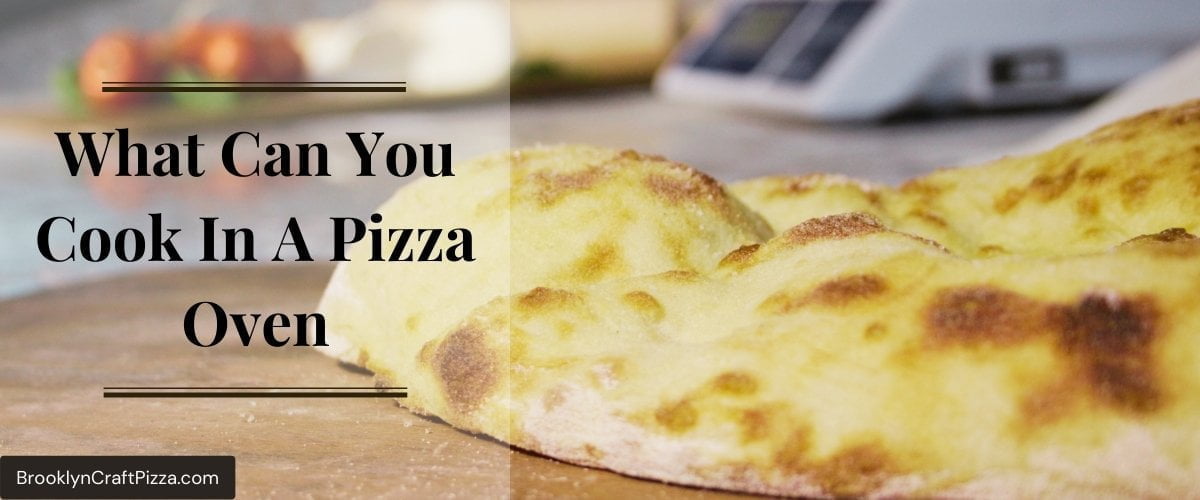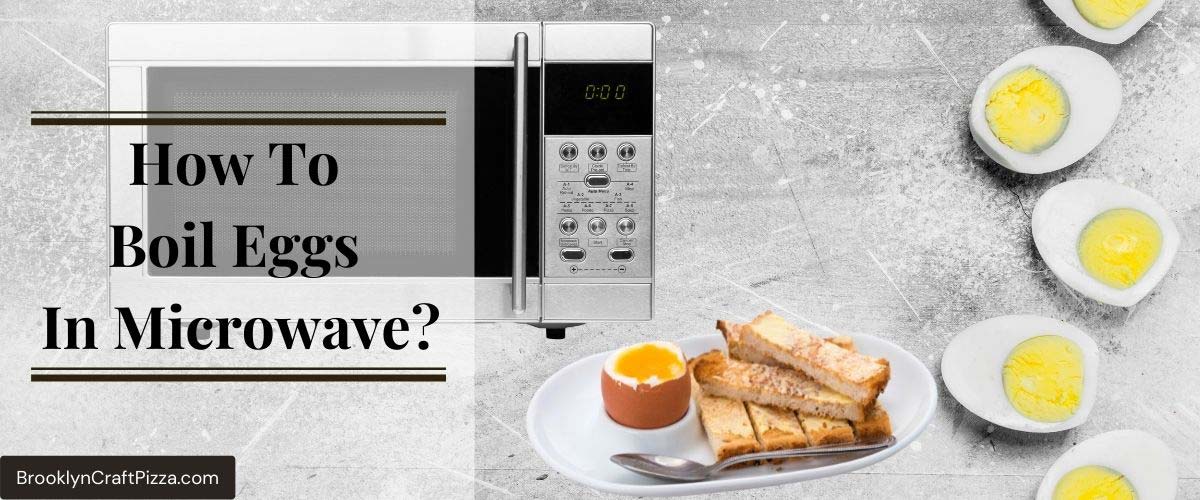
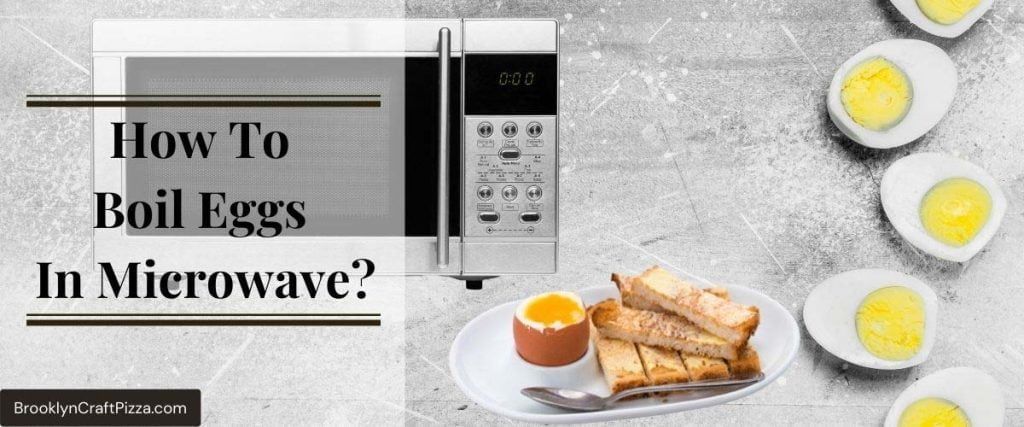
How To Boil Eggs In Microwave? – Everything You Need Know
Are you looking for a quick and easy way to boil an egg? If so, you may be wondering if it’s possible to do so in the microwave. The answer is Yes – you can boil an egg in the microwave with relative ease. In this article, we will provide detailed steps on how to boil eggs in microwave, as well as some tips to make the process easier.
Microwaving an egg may seem like a daunting task, but with these simple steps you can have perfectly boiled eggs every time. So, how to boil eggs in microwave & how long to boil eggs in microwave?
First, make sure you are using fresh eggs – older eggs will not cook evenly in the microwave. Fill a microwave-safe bowl with enough water to cover the eggs, then place them in the bowl. Cook on full power for about five minutes, or until the whites are set and the yolks are cooked to your desired doneness. Let the eggs cool slightly before peeling them – they should come off easily once they’ve cooled down a bit. Enjoy your easy-to-make microwaved eggs!
Can you boil an egg in the microwave? This is a question that many people have asked, and the answer is yes, you can. However, there are some things that you need to keep in mind when boiling eggs in the microwave. In this article, we will discuss the steps on how to hard boil an egg in the microwave, as well as some tips to ensure that your eggs come out perfectly every time. Let’s get started!
Can You Boil An Egg In The Microwave
Can you hard boil an egg in the microwave?
Yes, you can hard boil an egg in the microwave. It is safe to say that the microwave is actually the quickest way to hard boil an egg. You can have a perfectly hard boiled egg in just minutes!
While microwaves are primarily used for reheating, cooking and defrosting, you can actually hard boil eggs in the microwave. For this method, all you have to do is place the eggs inside a microwave-safe bowl and cover them with water.
Simply heat for about seven minutes on high or until your desired level of doneness. You should make sure that fresh eggs are being used if you want your boiled eggs to peel easily – older eggs tend to not cook evenly when cooked in the microwave.
Hard boiled eggs made in a microwave oven are a great way to quickly prepare a delicious snack or breakfast item without any hassles. So, How to boil eggs in microwave?
What You’ll Need
- Egg(s)
- Water Glass (optional)
- Steamer (if not using steamer basket)
- Bowl
- Microwave-Safe Plate
What you need to know when boiling eggs in a microwave:
- Boil 1 – 2 large or 3 – 4 medium eggs at a time. This will depend on the number of people served and how hungry they are.
- Hard boil 4 – 6 eggs at once if they are all for one meal or serving 6 – 8 if some are to be eaten later.
- Microwave ovens vary in wattage. Cooking times may vary; check the eggs for doneness at 1 minute intervals after 4 minutes.
How to hard boil an egg in the microwave
Can you hard boil an egg in the microwave? As you already know, the answer is yes. So how to hard boil an egg in the microwave? Microwave cooking is a fast and convenient way to prepare a snack or light meal.
However, people often shy away from it due to fears that microwaves somehow “damage” or heat food unevenly. For the most part, these types of misconceptions have been dispelled by research and practical experience.
In fact, microwaves are generally considered to be more energy efficient than other cooking methods for certain foods (including meats). They can cook safely from within without burning from outside layers.
Now, if you’re still not convinced – here’s how to hard boil an egg in the microwave perfectly:
Step 1: Place desired number of eggs into a deep bowl and cover with water
The more space between your eggs, the better. This allows for even distribution of heat inside the bowl.
Step 2: Place the bowl in the microwave and set timer to 9 min 30 sec
The length of time depends on how many eggs are being cooked. If you are cooking just one or two eggs, this should be sufficient. However, if you have multiple eggs – it’s best to cook them in separate bowls so they don’t overlap each other during cooking resulting in unevenly cooked yolks.
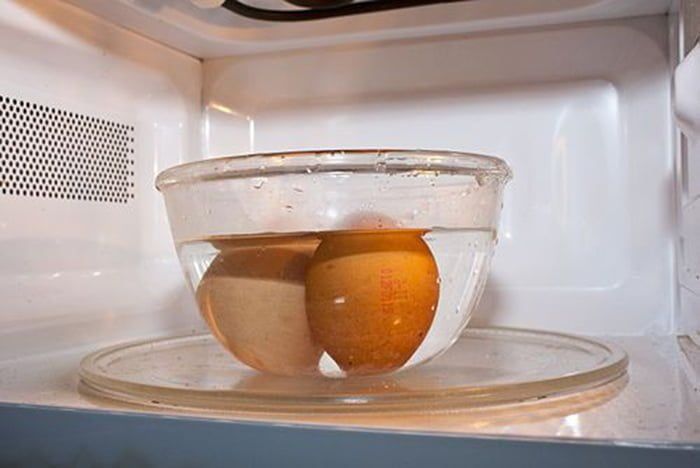
What happens is that microwaves concentrate their energy in liquid areas which causes these parts to heat up more than others (e.g. When water molecules rapidly vibrate as a result of exposure to microwaves).
Step 3: Remove from the microwave and let the eggs cool before peeling
After fully cooking the egg, you will notice that it separates easily from its shell. It is best to peel them while they are still warm (but not hot). If you leave the boiled eggs in cold water after microwaving, they can become too difficult to peel.
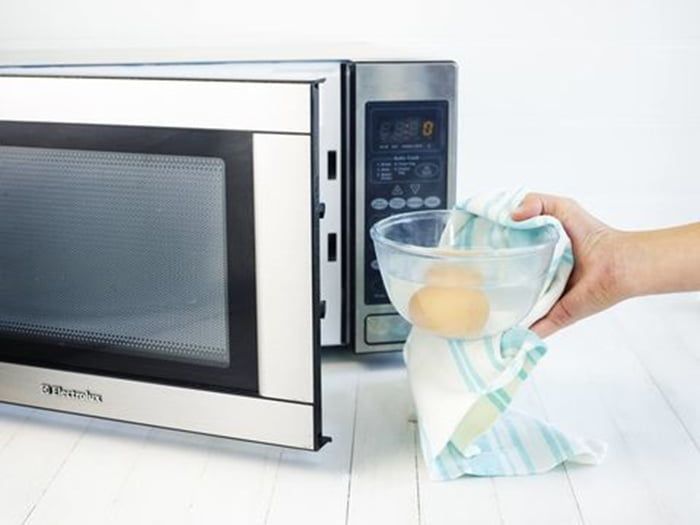
Step 4: Enjoy!
Microwaved eggs make for great snacks or light lunches on-the-go. You can season them with salt and/or pepper (or any other spices) for more flavor. They also make fantastic garnishes on various dishes like salads, sandwiches etc. Microwave hard boiled eggs are perfect when you don’t have time to cook at home or spend a lot of time away from the kitchen.
How to boil eggs in microwave
You may be wondering that can you boil an egg in the microwave. The answer is yes – you can! So, How to boil eggs in microwave?
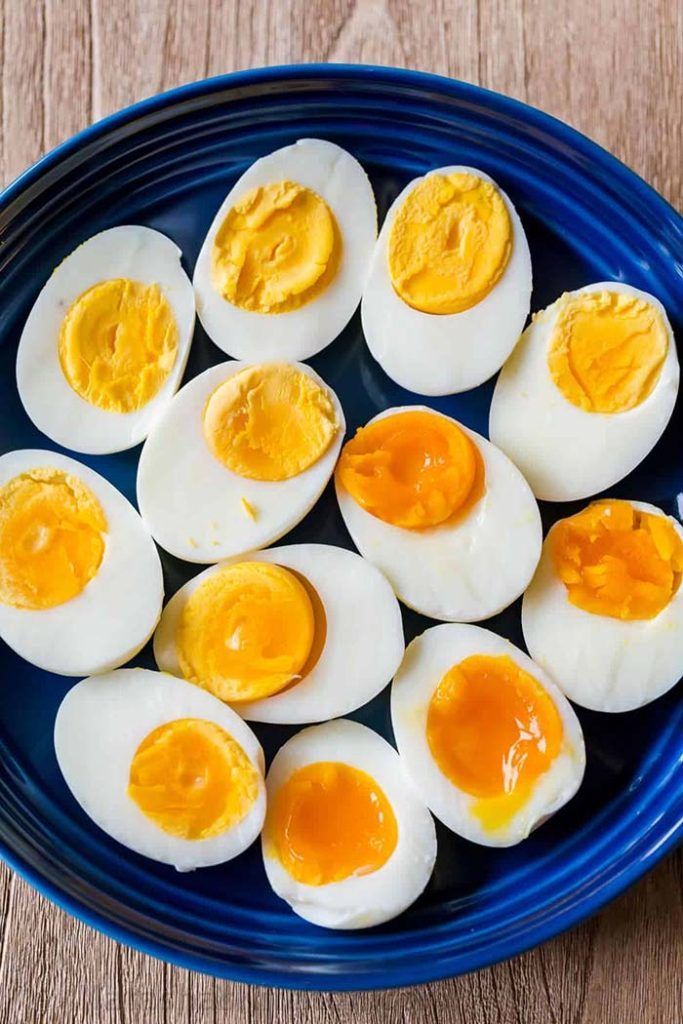
It is quick, simple and easy to make boiled eggs in the microwave. We will go over the detailed steps and tips on how to boil eggs in microwave safely and correctly. Here are detailed steps on how to do it successfully:
Step 1: Fill a microwave-safe bowl with water
Fill a glass bowl with enough water to cover your eggs. You should not use metal bowls for this process, as they will cause the eggs to be undercooked due to uneven cooking (the outer part of the egg being overcooked).
You can place a glass in the microwave as well, as this will prevent water from spilling over if it gets too hot. This step isn’t necessary but may help you avoid any potential messes or accidents.
Step 2: Place the eggs in the water
Carefully place your eggs into the bowl filled with water. The more space between them, the better – microwaves work by moving fluids around inside of objects, so if there is not much fluid within the bowl your egg could cook unevenly.
Step 3: Cover the bowl with plastic wrap
Cover the bowl with plastic wrap and then poke a few holes in it to allow steam to escape. If you are microwaving more than one egg, make sure that each egg has its own bowl of water – this will ensure that there is enough space between them for the microwaves to circulate.
Microwave on high for about 5 minutes or until your desired level of doneness is reached. This process should be able to get an egg cooked all the way through without any issue, especially since water can help distribute heat evenly within your eggs while cooking.
Depending on the wattage of your microwave, hard boiled eggs can take anywhere from four to ten minutes.
If you do not feel comfortable with microwaves or are unsure about how they work, it is advisable to use a stovetop method instead. You can boil the eggs in a pot of water on the stove for about five minutes, then transfer to an ice bath to stop the cooking process.
Step 4: Peel your eggs and enjoy!
Once the timer goes off, remove your bowl from the microwave and place it on a flat surface. Let the eggs cool for at least ten minutes before peeling them – otherwise you run the risk of the egg sticking to its shell.
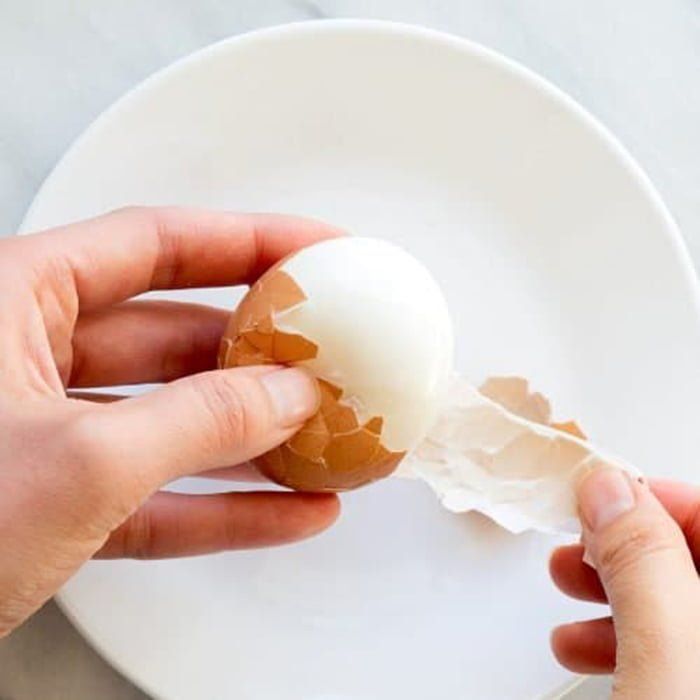
Now that you know how to boil eggs in microwave, it’s time to try it out yourself. You can use your boiled eggs however you like. They make for great snacks, appetizers, and even meals when paired with other ingredients (such as salads or sandwiches). The possibilities are endless!
How long to boil eggs in microwave
How long does it take to boil an egg? There is no one answer that fits all situations. However, there are several tips and tricks you can employ to help determine how long it will take for your eggs to become tender enough for consumption.
If you are wondering how long to boil eggs in microwave, it depends on several factors.
1) Microwaves come with wattage ratings which indicate their power output.
Higher wattage microwaves are faster and more efficient at heating things up. Depending on your particular oven, boiling 1-2 eggs should take anywhere from four to ten minutes.
2) Not all eggs are created equal.
They come in different sizes, shapes and densities which will determine cooking times as well as egg peeling success. The fresher an egg, the more difficult it becomes to peel off its shell after boiling – so be sure to use eggs that have been refrigerated for at least a week.
3) Suggestions on egg boiling time you can consider
The optimal cooking time for hard boiled eggs begins with placing them into cold water and bringing it to a boil over high heat (this can take up to 10 minutes or so).
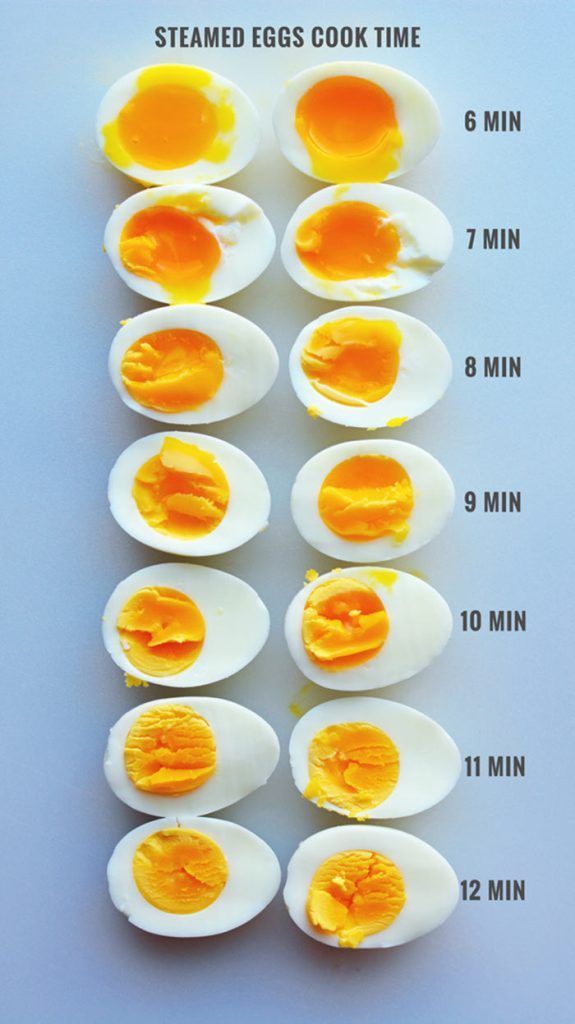
Once boiling commences and steam rises from the pot – reduce your stove top temperature just enough so that bubbles barely break through surface tension.
Now you can leave your eggs to cook for at least 12-13 minutes (15 is better if you have the time). Once they reach this point, turn off heat and let them cool in their own natural juices. This helps keep the peel intact after cooking and prevents it from sticking to the egg white membrane.
You can use a similar process to create hard boiled eggs in a microwave oven – but only with an external device known as a Microwave Oven Hard Boiler. This nifty little kitchen utensil is specially designed for boiling up to 3 medium sized eggs quickly while preserving their nutritional value along with providing easy clean-up afterward. It’s inexpensive too (~$10) so it won’t break the bank trying it out.
Peeling The Eggs
We have just gone through the guide on How to boil eggs in microwave, next we will show you how to make peeling eggs easier.
The key to peeling hard boiled eggs is in the timing. Once the eggs are cooked, they should be cooled down completely before you attempt to peel them.
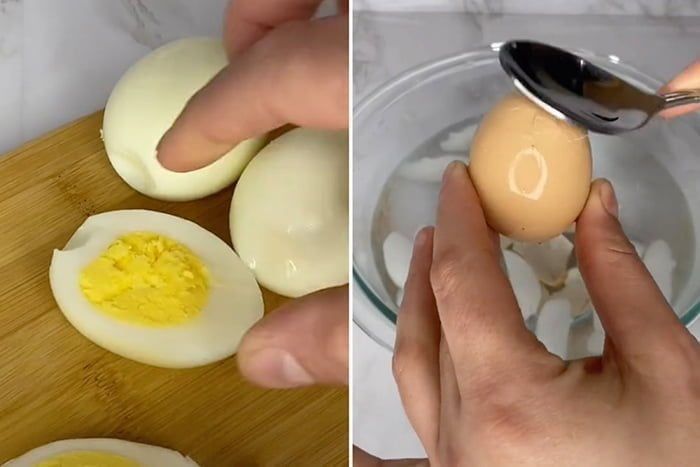
To do this quickly simply run cold water over eggs until they turn room temperature (allow 2-3 min for this process to complete).
Then crack shell all around by rolling it on a solid surface or applying gentle pressure with your palm.
Starting at the wider end of your egg – peel off broken bits of shell under running water while rotating the egg back and forth to remove everything intact.
Do’s And Dont’s When Boiling Eggs In A Microwave
There are a few do’s and don’ts when following our guide on how to boil eggs in microwave. You need to be careful to do this process to create perfect boiled eggs.
Do’s When Boiling Eggs In A Microwave
✅ Do choose eggs of similar size for even cooking results
Do ensure that your eggs are all similarly sized before microwaving them – this will guarantee more equitable cooking results.
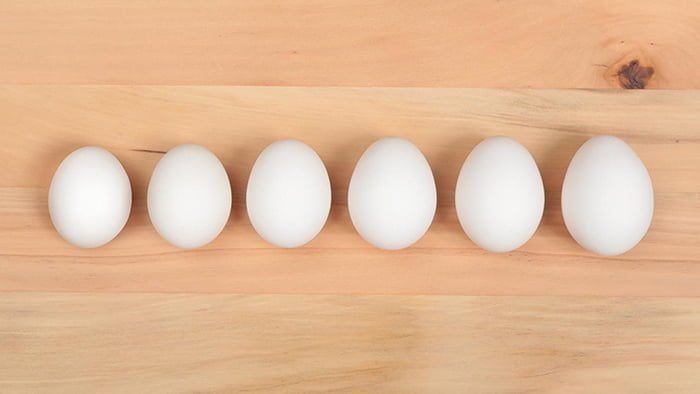
If there is a large difference in the weight or size of your eggs, they may cook differently which can result in an incompletely cooked egg being overcooked.
✅ Do poke several small holes into the rounded end of your egg if you are not piercing its shell
Do pierce some small holes on the rounded end (opposite to where its air pocket / “nest” is) with a pin before microwaving it. This will allow any steam to escape while preventing excessive pressure from building up too quickly within your egg while it cooks.
Pressure buildup can be a major cause of eggs exploding in the microwave.
✅ Do prick your eggs if you prefer them soft-boiled instead of medium or hard-boiled
Do mark an “x” on the wide end of your egg using a pin and then microwaving it for between 30 and 45 seconds depending on how runny you like your egg.
These times will ensure that your egg is either soft boiled or medium boiled – whatever takes your fancy!
✅ Do make sure you choose the correct number of minutes to boil each kind of egg
Do refer to this table (see images) which lists the approximate cooking time required for each type of egg:
Hard Boiled Egg Medium Boiled Egg Soft Boiled Egg
1 min 30 sec 2 mins 1 min
The table above is merely a guideline as the cooking time required will depend on which microwave you are using. You may need to experiment with different cooking times depending on your particular model of microwave, the size and weight of your eggs, etc.
✅ Do remove all shell fragments before eating hard-boiled eggs
Do allow hard boiled eggs to cool in their shells before removing them from the microwave – this will prevent excessive heat transference into their delicate contents.
Make sure that your egg is dry inside and out before peeling it – water between its shell and membrane can cause both parts to stick together while any eggshell stuck to the egg white can add unpleasant sharp edges.
✅ Do add baking soda to your water while boiling eggs in a saucepan
Do add 1/4 tsp of baking soda (bicarbonate of soda) to 1 cup of water used for boiling eggs which will cause the shell to slide right off if you like eating boiled eggs with their shells on.
Always note that excessive amounts of baking powder could react with your egg’s contents and produce an unpleasant bitter taste to your egg so, as always, moderation is key!
Dont’ s When Boiling Eggs In A Microwave
❌ Don’t prick eggs if you want to make boiled eggs easier to peel
Do not prick your egg’s shell if you like eating peeled hard-boiled eggs as this might make removing their shells difficult due to the increased likelihood that they will split along one or more pre-existing fissures (cracks)
❌ Don’t add salt to your water while boiling eggs in a pan
Do not add any salt or seasoning to your boiling water – this can adversely affect the taste of your egg.
If you like eating boiled eggs with their shells on (and particularly if they’re still warm when you remove them from the saucepan), do make sure that there are no tiny pieces of shell stuck to their surfaces before peeling them.
To be on the safe side, give your egg a quick rinse under cold water or gently wipe it with kitchen paper before removing its shell and eating it…
❌ Don’t shake or jolt your boiled eggs while cooling them down
Do not jolt/shake/wave/otherwise agitate your eggs if they are still hot from boiling as this can lead to tiny fissures (cracks) forming in their shells which might release unpleasant odors into their contents, discolor it or produce unsightly cut marks on your egg’s surface!
❌ Don’t use boiling water for removing shells
Do not use hot or boiling water to remove the shell from your boiled egg if you are planning on eating it.
This is because, as was mentioned in “Don’t remove eggs from their shells before boiling…” above, the membrane which attaches the egg white to its shell has a slightly different composition from that found between the yolk and shell of your egg.
As such, using anything other than lukewarm (tepid) water will cause this specific membrane to shrink causing tiny fissures (cracks) or tears along its length which can release unpleasant odors into an otherwise delectable part of boiled eggs!
❌ Don’t put your boiled eggs in the fridge
Do not store cooked / hard-boiled eggs in a fridge. This is because refrigerating them can cause further shell membranes to contract and develop invisible hairline cracks which could lead to the contents of your egg seeping out onto its shell!
Also, as was mentioned in “Don’t remove eggs from their shells before boiling…” above, pricking tiny holes in the bottom of your egg’s shell will open up new routes for fluids inside it to escape through.
❌ Don’t use luke-warm water for cooling down your boiled eggs
Do not use only luke-warm or tepid water to cool down your boiled egg after boiling it – this might cause portions of its shell membrane to contract away from its shell, leading to tiny invisible hairline cracks developing on it!
❌ Do not store boiled eggs near open windows
Do not place or leave cooked/hard-boiled eggs under an open window as their shells are especially vulnerable to changes of temperature.
Exposing them to hot air outside can make parts of their shells’ membranes contract more than others which may lead to small hairline cracks forming along some sections of these membranes.
Tips on How To Boil Eggs In Microwave
✅ Once the microwave has come to temperature (100% power), reduce it to 50% for roughly two minutes. This will ensure the egg is heated through without being overcooked.
After this point, you can choose to leave your eggs in for another 30 seconds or so at 50% power before turning it off completely and allowing them to finish cooking on their own.
✅ If you are cooking multiple eggs at a time, they need to be separated by about 3-4 inches. This helps ensure that they cook evenly.
In addition, hard boiled eggs should always be cooled gradually as opposed to being left in the fridge or with lots of water since this can lead to cracks and unevenness in yolks.
✅ Always use fresh eggs
Eggs that are placed in the microwave should not be used after they have been sitting for about three to four weeks, as older eggs tend to cook unevenly.
This is because as an egg age, its membranes begin to break down and it loses moisture through pores on its shell. The water that was absorbed into the egg begins to escape, which makes cooking the egg much more difficult – especially if you are microwaving it.
✅ Cooking time may vary due to the model of microwave used
✅ Be sure the eggs are covered by water at all times
It is very important that your eggs remain completely submerged in water while microwaving them – this ensures even cooking throughout. If there is not enough water surrounding your eggs it will result in cooked egg whites and raw egg yolks.
If you notice that your eggs are floating up out of the water while cooking, you can simply add a little bit more to submerge them again.
✅ Make sure your eggs aren’t touching each other
Eggs should not touch each other at all while microwaving – this ensures even heating throughout because they will cook differently if they are touching one another.
If there is not enough space between the eggs in your bowl, simply crack them slightly so that they can naturally separate and settle into their own spaces.
✅ Microwave from the center of the object
Microwaves work by moving fluids around within objects rather than by actual molecular rearrangement. Therefore, microwaves should be evenly distributed throughout your eggs if they are microwaved from the center.
If you place your egg in the corner of a bowl or directly against the edge of it, that portion of egg will cook much faster than parts which have been surrounded by water and not exposed to direct microwaves.
✅ Be careful when removing plastic wrap
When removing plastic wrap from a bowl containing eggs, be very careful – wearing oven mitts is advisable so that you do not burn yourself.
After your eggs have been cooked to your desired degree, simply drain away any excess liquid and serve on their own or on top of bread or toast for a tasty breakfast sandwich!
✅ Boiling eggs in a microwave is not an exact science due to the inherent differences between different microwaves.
If your eggs are still very runny after following the guidelines above, you can always cook them for another 30 seconds or so at 50% power. To prevent any cracked shells it’s also advisable that you allow your cooked eggs to cool gradually
How Do You Store Boiled Eggs?
You already know how to boil eggs in microwave, but if you have leftover eggs for your party, how do you store them properly? Here are some suggestions for you:
✅ Think of places where refrigeration isn’t an option
Think about travel, picnics, camping trips and times when you plan to be away from a refrigerator. In these cases boiled eggs can be stored safely at room temperature for up to one week.
If you have leftover boiled eggs that you will not have access to within this time frame, simply submerge them in cold water and store both the eggs and water in a large Ziploc bag or airtight container before placing them in your freezer.
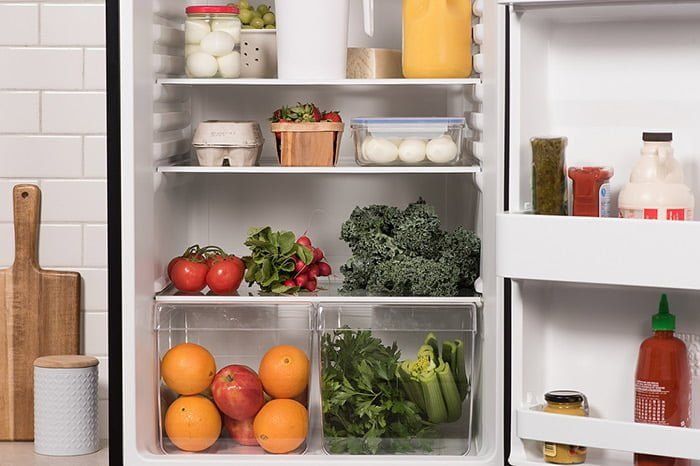
Once again, it’s best if they are exposed to as little air as possible – this helps prevent freezer burn on the shells which makes peeling more difficult.
✅ Alternatively, some people choose to store their cooked eggs in olive oil
Olive oil is an excellent option for storing boiled eggs because it keeps the shells from sticking to the cooked egg whites. Be sure that your olive oil has been stored in a cool, dry location away from windows where direct sunlight may have access to it – this will help prevent any flavor contamination.
It’s best if you choose low acidity, extra virgin olive oil as the high acidity levels can cause chemical changes within the egg that can reduce its shelf life.
✅ If you are planning to store your cooked eggs at room temperature for more than four hours, make sure they are wrapped tightly with plastic wrap before placing them in the refrigerator
When boiled eggs are refrigerated they expand slightly which them to crack open when moved. For this reason it’s important that they are wrapped in plastic or stored in a container so that no parts of the shell are exposed to air – this will help prevent it from drying out and making them difficult to peel.
✅ Remember, boiled eggs usually have a tighter seal
Only fresh eggs need to be refrigerated. If you have recently purchased your eggs at a farmer’s market or from a small farm, chances are they were laid within hours of being sold and don’t require refrigeration because there is still a protective coating around their shells which prevents bacteria from entering.
It’s always good to boil more than what you think you’ll need! Boiled eggs can easily be kept for up to one week if stored properly as described above.
What To Do If The Eggs Explode
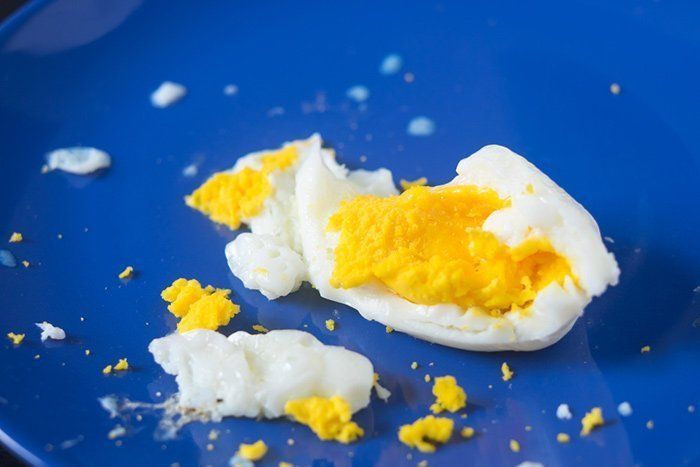
1) If eggs explode, reduce cooking time – it’s that simple
The water surrounding the egg can boil very rapidly due to high heat and pressure within the microwaves. Once the pressure within this enclosed space reaches an extreme point, it forces its way outward through small openings or cracks in either your eggshell or whatever container you are using.
This is what causes boiled eggs to explode if they are cooked for too long in a microwave.
2) Air cool boiled eggs instead of placing them directly into cold water
To prevent any explosions from occurring at all, simply allow your boiled eggs to air dry inside their shells before removing them from your microwave.
Never attempt to peel your eggs immediately after microwaving as even a small stitch of steam can cause them to explode.
A better idea would be to place your eggs inside a refrigerator for about 10 minutes prior to peeling them or putting them under cold running water.
3) If boiled eggs do explode, dispose of the contents carefully
If you find that your boiled eggs have exploded upon microwaving, do not attempt to salvage any parts of the egg as they are likely very dirty and contaminated with bacteria from being in contact with an open wound on your hand.
You should remove any small fragments of the shell before disposing of the remaining egg matter into the garbage. Then simply wash the container you used thoroughly with soap and hot water until it has been completely disinfected.
Recipe Ideas For Boiled Eggs
If you boil your eggs and uncover a number of misshapen, discolored or overcooked specimens, do not throw them away. Boiled eggs can be used as ingredients in a wide variety of recipes.

1) Blended to form egg salad or deviled eggs – Overcooked or otherwise unappetizing boiled eggs should never go to waste as long as they are blended up into dishes such as egg salad which will hide their discolorations and lumps
2) Scrambled – As with egg salad, scrambled eggs can also conceal the appearance of unwanted boiled eggs by incorporating other ingredients which give off their own distinct flavors and textures (cheese and onion for example)
3) Stirred into soup – The healthy fats found in boiled eggs make them a great way to thicken the broth of soups such as chicken noodle or minestrone without needing to use any dairy products
4) As a garnish – The bright yellow yolk of a boiled egg is a nice addition to top dishes off with, especially those which have been very heavily spiced. It can be used on salads, pizza and even chili dishes
5) In salads – Eggs can be hard boiled and then chopped into pieces to top off a salad for added protein and flavor
6) As an appetizer – A favorite of mine has always been serving up lightly salted boiled eggs alongside horseradish mustard sauce as a first course for dinner parties. The creamy texture and zesty flavor of the sauce contrasts nicely with the saline taste and smoky scent of the egg yolk.

You could also try topping your boiled eggs with additional ingredients such as fresh dill, smoked salmon or even caviar!
7) With toast points – Simply cut crusts from some white bread, cut each piece into several triangles (see picture below), brush lightly with olive oil and bake at 350 degrees Fahrenheit until golden brown. Serve alongside your boiled eggs for a classy hors d’oeuvre!
8) In ramen – One of the best parts about eating boiled eggs is that they make excellent additions to virtually any dish you can imagine, even instant cups of ramen noodles. Simply chop up your egg and stir it into the soup after removing it from its water bath. Top with some scallions, sprouts or even sriracha if you’re feeling adventurous!
9) In a sandwich – The bread in a sandwich can hide a multitude of sins when it comes to how overcooked or otherwise underwhelming your boiled eggs may be. Plus who doesn’t like putting an extra layer of protein between slices of bread?
11) In rice – Although it may sound strange at first to put boiled egg yolks in rice instead of just using the whole egg as one would normally do when preparing fried rice, this Asian-style dish is actually quite delicious after all. Just make your white or brown rice usual before stirring in some soy sauce, chopped up egg whites and yolks and cook until the eggs are warmed through.
12) On toast – Although boiled eggs can easily be served alongside toast points as mentioned earlier, they also taste great with simple pieces of toasted white bread. Spread on some butter or your favorite vegan spread before topping with either your egg slices or crumbled bits of hard-boiled yolk to enjoy a truly classic meal!
FAQs
Is it safe to boil egg in microwave?
It is safe to boil eggs in microwave oven as long as you adhere to the instructions provided. This will help give your eggs the right texture. However, you should not try this with un-fertile or old eggs.
How many minutes does it take to boil an egg in microwave?
It will take between 1 and 4 minutes depending on how well done you like your eggs cooked. Start with one minute and increase by 30 seconds for each extra level of doneness desired.
How do you tell if your boiled egg has gone bad?
If your boiled egg has gone bad, it will appear swollen, have an unappetizing membrane around the yolk and smell unpleasant. Tips Boiling times depend largely on the size of eggs and whether they are fresh or more than a few days old.
How do you microwave a boiled egg without it exploding?
The easiest way to microwave a boiled egg without it exploding is to add a teaspoon of salt in the water before boiling, this will prevent the shell from cracking. You can also try microwaving your eggs for just 60 seconds and adding another 20 seconds if it has not quite reached your desired level of hardness.
How long do you microwave an egg?
To microwave a hard-boiled egg, start with one minute per level of doneness you desire and add 30 seconds for each extra half level. To microwave a soft-boiled egg, start with 45 seconds and add another 15 to 20 seconds depending on how runny you enjoy your eggs.
How do you boil eggs without the shell sticking?
One of the easiest ways to boil eggs without the shells sticking is to add a teaspoon of vinegar in the water before boiling. This will prevent your egg from cracking and peeling easily.
What do you put in water when boiling eggs to make them peel easier?
One of the easiest ways to make sure that your hard-boiled eggs will always peel off beautifully with absolutely no shell fragments sticking on any part is to add a teaspoon of salt in the water at the time of boiling. Salt will not only help prevent cracking but it will also aid in loosening up both the white and yolk membranes making it easier for you to break the egg away from its shell.
Why exactly are boiled eggs easier to peel when they are still warm?
A lot of people wonder why boiled eggs are more difficult to peel if they are still warm from being cooked. The reason for this has nothing to do with either cooking time or water temperature but rather due to the density of the egg itself.
While still inside their shells, boiled eggs are more compact, denser and thus heavier than uncooked eggs which are less tightly packed. As a result of this excess weight, the albumen tends to exert more pressure on the inner membrane causing it to stick tenaciously onto the shell’s interior.
When an egg is allowed to cool however, its outer membranes will contract while at the same time its internal structure will loosen up. This means that when peeled next after having been cooled down completely, it should come off much easier due to there not being as much resistance from within. This process can be expedited even further by immersing your eggs in ice water right after they have finished cooking!
What causes eggs to be so difficult to peel?
While we’ve covered one of the reasons for this in the previous section, a number of other factors can also affect how easily a boiled egg will peel. These include:
1) The amount of water used while cooking them
The more water that is used during boiling, the less likely it will be for your eggs to get stuck onto their shells. This is because excess vapor coming from boiling water tends to seep between both shells and membranes resulting in less friction being applied upon peeling. However do note that adding too much water may leach out too many of an egg’s vital nutrients so keep it at around one inch above the eggs instead.
2) The way they are cooled down before peeling
When an egg has just finished cooking, its outside layers of membranes contract while at the same time its insides become looser.
As a result you can usually peel an egg much more easily if it has been cooled down fully before attempting to do so. This can be done by either chilling them in ice water or just simply letting them cool off at room temperature for around ten minutes.
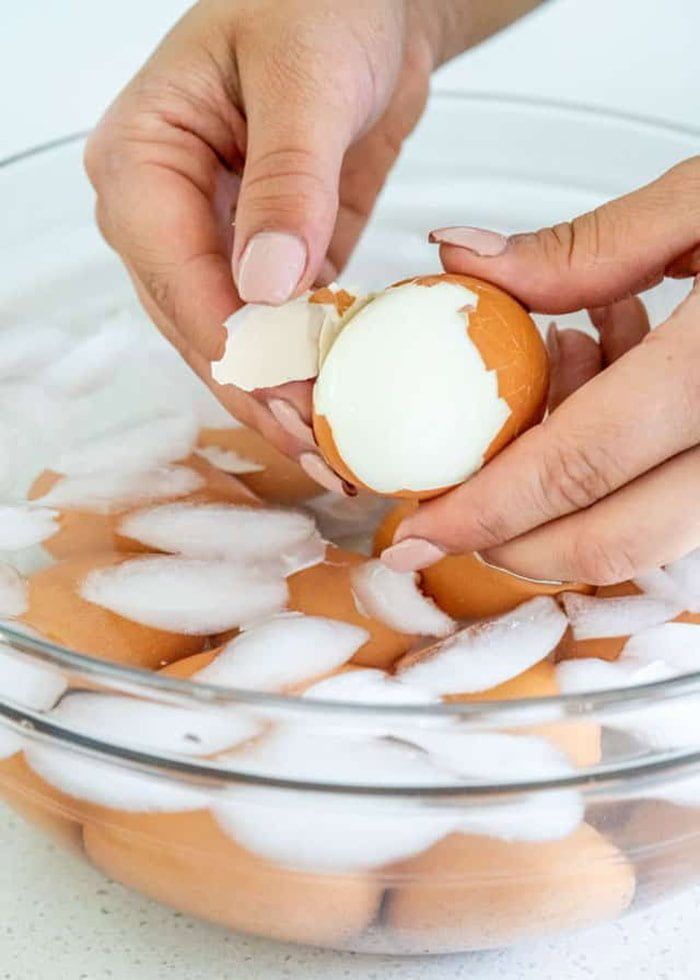
Even better is to even store your eggs this way after cooking to have on hand whenever you need one!
Conclusion on How To Boil Eggs In Microwave
Boiled eggs are a healthy, convenient and satisfying breakfast option. They’re also extremely versatile with endless recipe ideas for different tastes and diet needs.

Can you boil an egg in the microwave? Yes, you can boil an egg in the microwave if you know best practices to create perfect boiled eggs every time. You just need to follow these easy steps on How to hard boil an egg in the mirowave. These tips will help ensure your egg is cooked through without overcooking it so that it’s still perfectly gooey inside – a great way to start your day!
You don’t have to boil eggs in the microwave, but if you want a quick and easy way to make boiled eggs with no cleanup, this is an option. The time it takes for your egg to cook depends on the power of your microwave. If you use a lower-powered one or heat up more than 1 at a time, be sure that they’re not touching each other because they’ll take longer. We hope these tips help!
Now you know how to boil eggs in microwave, what equipment to use and how long to boil eggs in microwave. You also have some recipe ideas for boiled eggs! Which of these tips or recipes did you find most interesting? Let us know on social media, we’re always looking for feedback from our readers.
Whether this is your first time boiling an egg in a microwave or not, please share with friends and family who may be interested as well. We want them to enjoy their hard-boiled egg just as much as we do ours! And we’d love to hear from you about our instructions on how to hard boil an egg in the microwave.
Do you think microwaving makes more sense than using other methods? Have any questions about the instruction on how to boil eggs in microwave that weren’t answered here? Feel free to leave those below too.
Further reading
How To Defrost Sausage In Microwave Properly?



